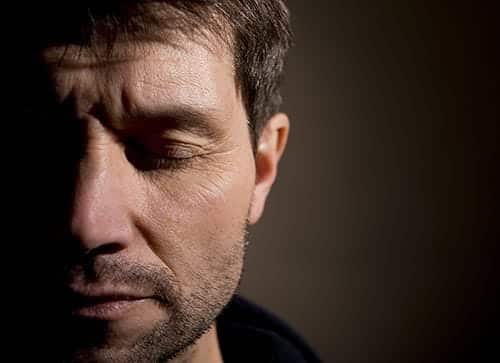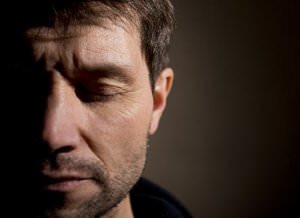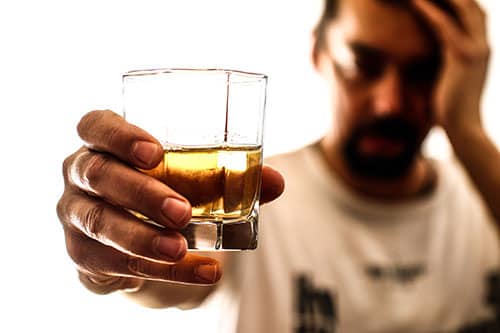Post-traumatic stress disorder, also known as PTSD, affects people all over the world. Sadly, many people do not realize the severity of this disorder and the importance of getting treatment for it. But, those who are living with the effects of PTSD should certainly seek help and receive support in order to address this disorder. Crest View Recovery Center in Asheville, NC treats PTSD symptoms in men and women who are in need of dual diagnosis treatment.
Among those who suffer from this disorder are countless men who have experienced traumatic events in their lives. One of the best ways to begin addressing the effects of PTSD symptoms in men is to learn more about the disorder itself. This disorder is, unfortunately, quite prevalent. But, with help from a professional treatment facility, those who suffer from PTSD can properly manage their symptoms and begin living a happier and healthier life!
It’s also important to take into account that post-traumatic stress disorder can co-occur with other issues. Many people dealing with substance abuse and addiction have experienced a traumatic event in their past. What is the link between addiction and trauma? What are the most common PTSD symptoms in men? The material below will address these important questions more fully.
Understanding PTSD
PTSD, or post-traumatic stress disorder, is a mental health condition that affects some people after they have gone through a traumatic event. When a person has PTSD, they may have vivid flashbacks of the traumatic event they experienced. The mental, emotional, and physical stress of this condition can make daily life very difficult.
According to an article by the National Alliance on Mental Illness (NAMI), post-traumatic stress disorder is more likely to occur in women than it is in men. However, this does not mean that men do not suffer from this disorder. The U.S. Department of Veteran Affairs states that, while 10 out of every 100 women suffer from PTSD, 4 out of every 100 men experience PTSD at some point in their lives. So, about 4% of men suffer from this disorder.
Learning more about PTSD in men begins with learning about the symptoms a person may experience when suffering from this disorder. It’s also important to gain a deeper understanding of how and why people develop this disorder.
Prevalent PTSD Symptoms in Men
Do you know how to recognize PTSD in a family member? Pay careful attention to the following PTSD symptoms in men so that you can seek help when it is needed:
Panic Attacks
PTSD can create an almost constant state of panic or fear. Those affected by this condition may become too fearful to even leave their home. Panic attacks can occur in any setting, leaving the person fearful about when the next one will strike.
Insomnia or Nightmares
Panic and fear can also result in restlessness and poor sleep. When the person does sleep, they may have nightmares relating to the traumatic experience they had. This can be thought of as “reliving” the experience.
Detachment from Loved Ones
Those facing PTSD may begin to separate themselves from people they love. They might prefer to spend much of their time in solitude. They may stop spending time with friends and spend more time at home, instead. Additionally, they might lose interest in activities that were once very special to them.
This detachment and isolation can lead to problems, including trouble at school and issues at work. It can also cause people to struggle to build and maintain healthy relationships with friends, family members, coworkers, and romantic partners.
Mood or Behavioral Disturbances
Mood swings and personality changes are common PTSD symptoms in men. The act of living in fear itself can result in an unstable mood. Men who suffer from post-traumatic stress disorder may also have difficulty focusing and concentrating. They may also tend to have negative thoughts about themselves, others, or the world in general. Angry outbursts or extreme tenseness may also occur as a result of post-traumatic stress disorder. Finally, individuals may become “emotionally numb”.
Why Do People Develop Post-Traumatic Stress Disorder
In many cases, people who develop PTSD experience symptoms anywhere from 1 month to some years after a traumatic event occurs. Individuals who have been exposed to a traumatic occurrence may develop symptoms of PTSD as a result of the event. What qualifies as a traumatic event differs from case to case. Some examples of traumatizing occurrences that may lead to the development of post-traumatic stress disorder include the following:
- Sexual abuse
- Mental abuse
- Emotional abuse
- Loss of a loved one
- Combat or war zone
- Witnessing a car accident
- Being involved in a car accident
While it is not truly clear why some people develop PTSD while others do not, one thing remains true: this disorder is serious and requires professional attention. It’s important to understand the factors that are involved in this disorder.
After all, PTSD can be life-altering as the symptoms may hinder people from living their normal, day-to-day lives. The effects of post-traumatic stress disorder often prevent individuals from working efficiently, connecting with others, and enjoying things that should bring pleasure. This disorder can also make it difficult for people to secure and maintain jobs, which could lead to financial hardship.
Fortunately, there are many resources and treatment approaches that can help those who suffer from post-traumatic stress disorder.
Treatment Approaches for PTSD
Effective treatment for PTSD can include many types of therapies. Some of the most effective treatment plans begin with intensive personal psychotherapy. Group and family counseling can also be included for further benefits. Finally, cognitive-behavioral therapies can help people change negative thoughts and actions into positive ones.
Therapy is helpful for many different reasons. Those who suffer from PTSD may often struggle with feelings of guilt, shame, and other types of emotional discomfort. People who have post-traumatic stress disorder may also feel that they are to blame for the experiences they’ve had. Sometimes, the emotional and mental disturbances that come with PTSD can cause people to become very detached and disconnected from others. This can lead to a life of loneliness, fear, anxiety, and depression.
Thankfully, however, therapy can help to address these challenges. Talk therapy allows individuals to speak with a therapist about the things they have experienced. They can discuss the symptoms of PTSD and the disorder’s effects on their lives. This allows people to work through emotions that they have a hard time addressing on their own.
Group therapy may help people to develop healthy interpersonal skills. This enables individuals to become more comfortable about communicating with others in an effective way. It also helps people to know that they are not alone, as PTSD often causes people to feel that no one understands what they are going through. Having the support of people who truly understand a person’s struggles and challenges can help the individual immensely.
Finally, mindfulness activities are often a part of therapy. These activities encourage individuals to think about the present, focusing on the here and now, rather than the events of the past or future. This can help people to cope and manage their emotional responses in difficult moments.
Dual Diagnosis: Men Living With Addiction and PTSD Symptoms
As we mentioned earlier, many individuals who suffer from post-traumatic stress disorder also struggle with addiction. This is known as a dual diagnosis. Often, people who suffer from mental health disorders struggle to manage their symptoms in a healthy way. Sometimes, these symptoms can be extremely overwhelming and difficult to live with. As a result, many individuals turn to drugs or alcohol in order to escape from the effects of these symptoms.
Substance use is frequently a self-medication approach that people use in order to deal with the challenges they’re experiencing. Although this may seem to be the answer, it poses a very serious threat to those who use this method of self-medication. Many individuals develop addictions after using and abusing substances like alcohol, heroin, cocaine, or prescription drugs. Addiction is already harmful in and of itself. However, it can be even more problematic if it co-occurs with a mental health disorder.
Sadly, many of the individuals who suffer from a dual diagnosis of addiction and PTSD struggle to get the help that they need. This is certainly true for women and men alike. But one of the reasons why men may struggle to get help is the discomfort of asking for help. Others might be unsure if they can get treatment and still take care of home-related responsibilities or go to work.
However, it’s important for those who are living with co-occurring disorders to get professional help in order to overcome addiction and manage mental health symptoms. So, if you are currently suffering from a mental health disorder in addition to a substance use disorder, now is the time to seek help. You can find the hope and resources you need today; you only need to take the first step by reaching out.
Treating PTSD Symptoms in Men in Asheville, NC
Finding appropriate trauma therapy does not have to be a difficult process. Crest View Recovery Center is an experienced drug abuse treatment facility in Asheville, NC that can treat PTSD symptoms in men. The caring staff members at CVRC implement a variety of holistic programs and tools to ensure all essential needs are met. Within a setting featuring the serene mountains of North Carolina, each individual will get the individual care that is important for recovery. For example, our therapies include:
Don’t allow trauma or addiction to predict your future success. You can get the tools you need to overcome addiction with the help of a caring rehab center. Call Crest View Recovery Center to learn how we can help you get started on the path to healing today. Learn more about PTSD symptoms in men and how to overcome these challenges in your life.





